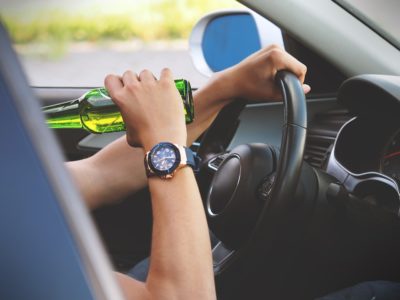
DUI In New Mexico | Learn About The Laws & How To Avoid Penalties
DUI in New Mexico comes with harsh penalties no one will want to face. Read this short post from Bowles Law Firm now to learn more.
It is often said, but cannot be overemphasized, that no one should drink or drug and drive. The costs and penalties for DUI in New Mexico are incredibly high and far too many tragic, and deadly outcomes, occur almost daily across the country.
In New Mexico and Texas, it is unlawful to drive a vehicle while under the influence of marijuana, alcohol, other drugs, or a combination of substances. When alcohol is involved, a blood alcohol level of 0.08 percent of the driver’s blood, will presumptively establish that the driver is under the influence. If the level is less, the prosecutor can still point to the driver’s actions to prove that he or she was under the influence. This can include the officer’s observations of driving behavior such as weaving or speeding, and if the driver consents to standard field sobriety tests, the officer’s observations of how the tests were performed, and other observations such as bloodshot and/or watery eyes, odor of alcohol or marijuana, and whether the driver made any admissions to drinking or using controlled substances.
When marijuana is involved, any amount of active marijuana metabolites in the driver’s blood or urine while he or she was driving may establish that the driver was impaired or driving under the influence. (N.M. Stat. Ann. § 66-8-102.); (Texas Stat. and Code Ann. § 49.01.). However, the prosecution will still have to show “impairment.” New Mexico and Texas are not “per se” violation states, whereby a driver is automatically determined to be impaired if any marijuana is found in their system.
A blood test may detect the presence of THC in your system but it is more significant for what such a test does not reveal:
- Unlike alcohol, the test cannot reveal when you used the drug or at least within a few hours
- It is not a reliable test of how much you ingested or smoked
- There is no consensus on how much marijuana in your system indicates you are impaired when driving
The high from marijuana use occurs shortly after using it and can last for a few hours. Because marijuana is fat-soluble, inactive metabolites remain in your body for hours or days after use depending on whether you are chronic or occasional user. If used occasionally, it can remain for 12 hours. If you are a chronic user, it can last from 2 to 30 days. The presence of marijuana metabolites in one’s blood stream, in and of itself, may or may not be evidence of driving impairment.

NEW MEXICO PENALTIES FOR DUI
For a conviction, DUI penalties vary according to whether the offense is a first or subsequent conviction, with additional penalties for “aggravated” convictions. Aggravated DUI convictions are offenses that also caused bodily harm to a person other than the driver, or offenses where the driver refused to submit to a chemical test when arrested.
- First conviction. Fine of up to $500, and up to 24 hours of community service, or both. Up to 90 days jail. Ignition interlock device for one year.
- Second conviction. Fine of between $500 and $1,000, at least 96 hours (and up to one year) in jail, and at least 48 hours of community service. The judge will also order the defendant to participate in court-approved drug or alcohol abuse screening program, and an ignition interlock device for two years.
- Third conviction. Fine of between $750 and $1,000, mandatory 30 days (and up to one year) in jail, and at least 96 hours of community service. The judge will also order the defendant to participate in court-approved drug or alcohol abuse screening program, and an ignition interlock device for three years.
- Fourth conviction (felony). Fine of up to $5,000, mandatory six months in jail (and up to 18 months in prison), or both. The judge will also order the defendant to participate in court-approved drug or alcohol abuse screening program, and to permanently use an ignition interlock device (defendant may petition the judge for removal of the device after five years).
- Fifth conviction (felony). Fine of up to $5,000, mandatory two years in prison, or both. The judge will also order the defendant to participate in court-approved drug or alcohol abuse screening program, and permanent ignition interlock device (defendant may petition the judge for removal of the device after five years).
- Sixth conviction (felony). Fine of up to $5,000, mandatory 30 months in prison, or both. The judge will also order the defendant to participate in court-approved drug or alcohol abuse screening program, and permanently ignition interlock device (defendant may petition the judge for removal of the device after five years).
- Seventh and subsequent convictions (felony). Fine of up to $5,000, mandatory three years in prison, or both. The judge will also order the defendant to participate in court-approved drug or alcohol abuse screening program, and permanent ignition interlock device (defendant may petition the judge for removal of the device after five years).
- Aggravated offenses. In addition to the above penalties, additional jail time will apply to aggravated offenses. First offenses carry at least an additional 48 hours of jail time; at least 96 hours for second offenses; and at least six additional days in jail for third or subsequent offense.
In conclusion, you do not want to take DUI in New Mexico lightly. This is a serious offense that should be avoided at all costs.

TEXAS PENALTIES FOR DUI
For a conviction in Texas, penalties vary according to whether the offense is a first of subsequent conviction, with increased penalties for offenses committed while a minor was in the vehicle. (Texas Stat. and Code Ann. § 49.04.)
- First conviction. Fine of up to $2,000, between 72 hours and 180 days in jail, or both; between 24 and 100 hours of community service, and up to one year of license suspension.
- Second conviction. Fine of up to $4,000, between 30 days and one year in jail, or both; between 80 and 200 hours of community service, and between 180 days and two years of license suspension.
- Third and subsequent convictions. Fine of up to $10,000, between two and ten years in prison, or both; between 160 and 600 hours of community service, and between 180 days and two years of license suspension.
If you are driving while intoxicated with a child younger than 15 years old in your vehicle, you face:
- Up to a $10,000 fine.
- Jail time up to 2 years.
- License suspension for 180 days.


